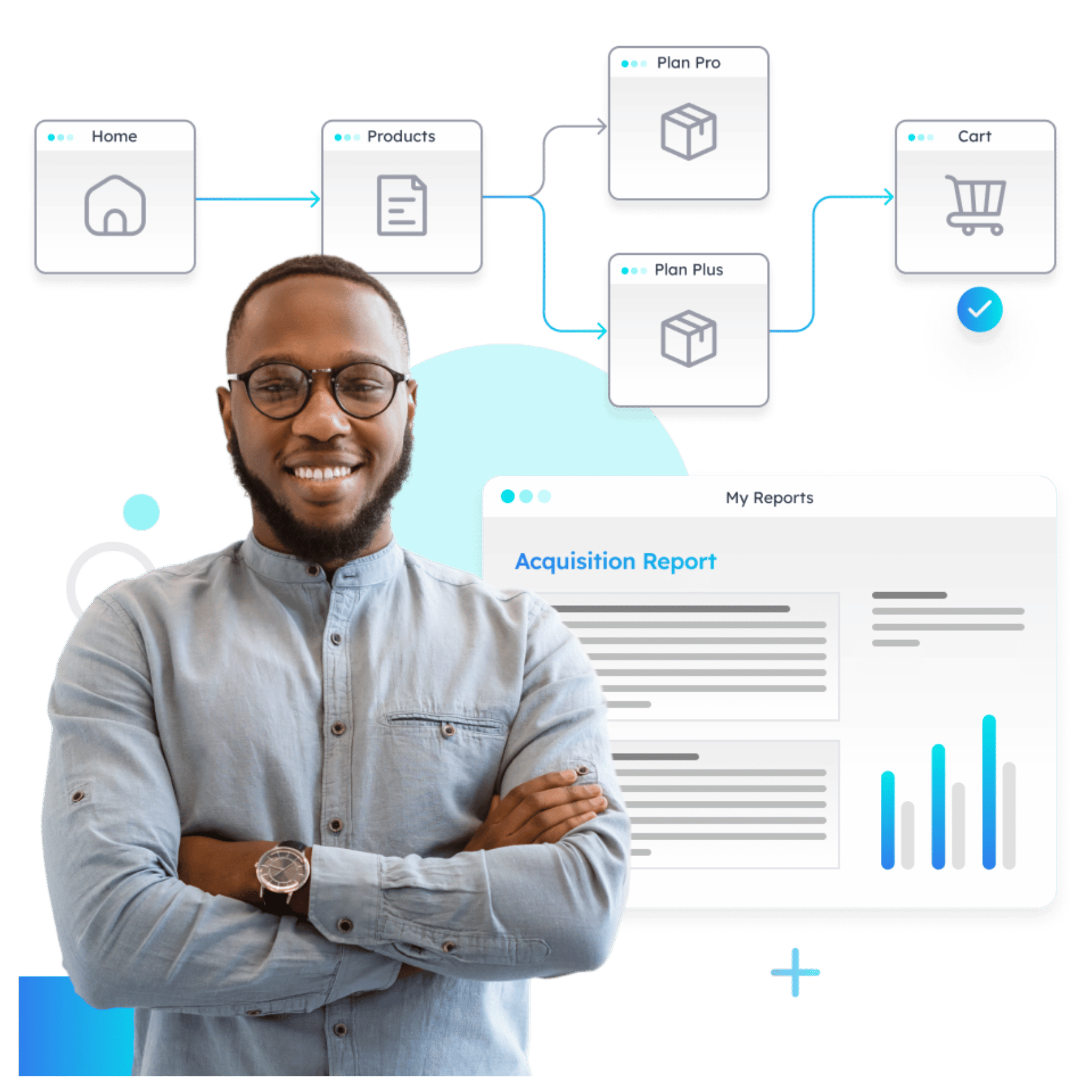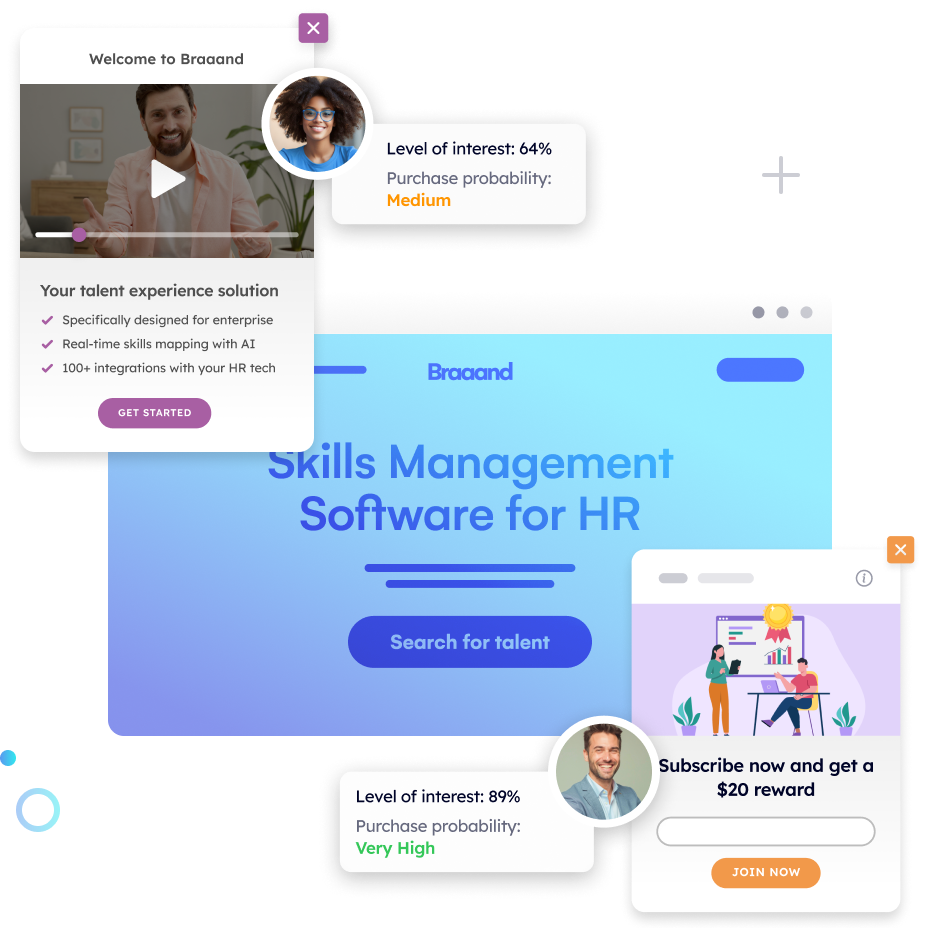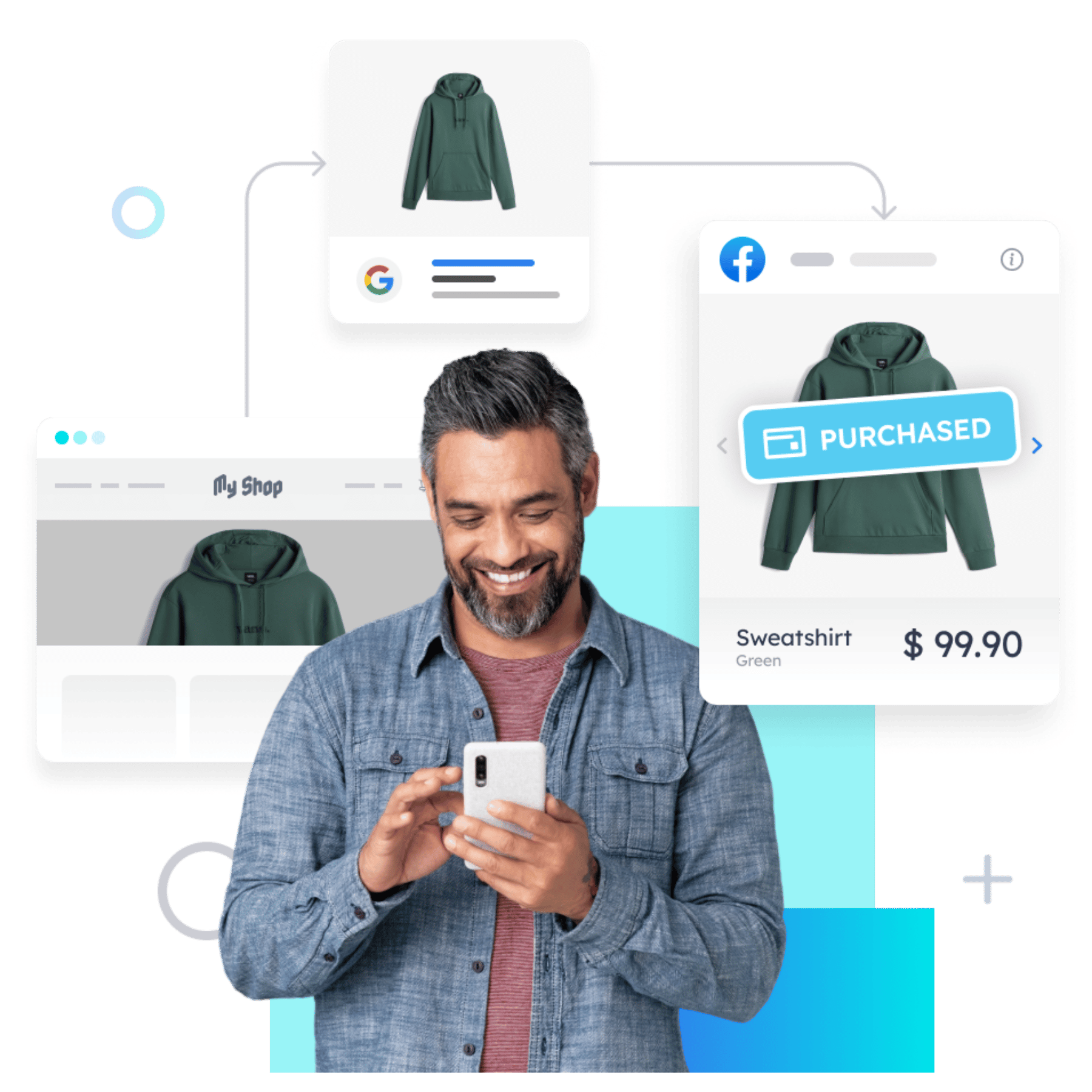
Law firms, like other B2B providers, face unique challenges in attracting and retaining corporate clients. Unlike consumer-facing businesses, B2B legal firms must position themselves as trusted advisors to in-house counsel, procurement departments, and other decision-makers who value expertise, reliability, and a deep understanding of industry-specific legal needs.
For law firms, success lies in creating a robust and trustworthy digital presence that speaks directly to the needs of corporate decision-makers and nurtures relationships over time.
In this article, we’ll explore 7 strategies for digital B2B legal marketing tailored specifically for the legal industry. These strategies have been proven to generate high-quality leads, enhance client relationships, and ultimately drive growth.
Table of Contents
Understanding Your Client’s Buying Journey
The buyer’s journey for corporate legal services is complex and involves multiple stakeholders. Unlike individual consumers, corporate clients go through a more rigorous process when selecting legal partners. The first step in this process is to understand the buyer’s journey and map the main touch points, to have a better vision of where you should optimize your strategy.
Corporate legal clients typically follow a three-stage journey:
- Awareness: Recognizing the need for legal services, often triggered by changes in regulations, business expansions, or internal challenges.
- Consideration: Evaluating potential legal partners based on industry expertise, reputation, and case studies. This is where content marketing plays a vital role.
- Decision: Finalizing the choice of a legal firm after thorough vetting, consultations, and internal discussions.
To effectively engage with corporate clients at each stage, it’s essential to map out the buyer’s journey. Tools like HubSpot and Pipedrive allow you to track interactions, identify key touchpoints, and deliver targeted content that addresses the specific concerns of each decision-maker within the organization.
Key actions:
- Use data analytics to understand the behavior and preferences of your target audience.
- Segment your audience based on industry, company size, and role within the organization to personalize your outreach.
- Develop a content strategy that addresses the needs of corporate clients at each stage of the buyer’s journey.
Pro tip: Leverage the power of AI without disrupting your existing marketing setup. Pathmonk, as a HubSpot-certified partner, offers seamless integration with all major CRM platforms, complementing their analytical power. Regardless of the software you currently use, Pathmonk can easily integrate with your already existing technology stack. Pathmonk provides you with valuable lead information and qualification data.
Understand how your prospects behave (in real time)
- Visualize how visitors move across your website
- Identify drop-offs and friction points instantly
- Turn journey data into actionable insights with AI

Establishing Authority with Thought Leadership Content
In the legal industry, credibility is everything. Corporate clients are looking for partners who are not only experts in the law but also understand the intricacies of their specific industries. Thought leadership content is an effective way to demonstrate this expertise.
By producing high-quality, insightful content, you position your firm as a thought leader. This could be in the form of whitepapers, industry reports, webinars, or even detailed blog posts that tackle complex legal issues. The goal is to provide value to your audience, showing them that your firm is ahead of the curve on legal trends that matter to their business.
According to Edelman and LinkedIn’s B2B Thought Leadership Impact Study, 55% of decision-makers use thought leadership content as a way to vet potential service providers. This underscores the importance of creating content that not only informs but also builds trust.
Types of content that resonate with corporate legal clients:
- Industry reports: Detailed analyses on legal trends affecting specific sectors.
- Case studies: Success stories that highlight your firm’s ability to solve complex legal challenges for corporate clients.
- Executive webinars: Discussions with your firm’s partners on emerging legal issues and how they impact different industries.
Key actions:
- Focus on creating content that addresses the unique legal challenges faced by your target industries.
- Distribute your thought leadership content across multiple channels, including your website, social media, and email newsletters.
Advanced SEO Strategies for B2B Legal Firms
Investing effort in SEO is a great way of acquiring high-intent traffic to your website. For B2B legal firms, the challenge lies in targeting the right keywords that align with the needs of corporate clients -which tend to have a low search volume, as normally happens with B2B companies.
SEO for B2B legal services requires a different approach than B2C. Instead of focusing on broad, generic keywords, prioritize niche keywords that reflect the specific services and industries your firm serves. For example, instead of targeting “corporate law firm,” consider keywords like “M&A legal services for tech companies” or “compliance law firm for healthcare.”
SEO tactics for the legal B2B sector:
- Content hubs for industry verticals: Create content hubs that group related articles, guides, and case studies focused on specific industries. This not only improves SEO but also enhances the user experience by providing comprehensive information on a single topic.
- Local SEO with a B2B focus: While local SEO is typically associated with consumer businesses, it’s also relevant for law firms with multiple office locations. Optimize for geo-specific keywords that are relevant to corporate offices in different regions.
Technical insights:
- Use tools like Google Search Console and SEMrush to monitor keyword performance and identify new opportunities for optimization.
- Implement schema markup to improve your site’s visibility in search engine results by providing search engines with detailed information about your content.
- Regularly update your content to ensure it remains relevant and optimized for current SEO trends.
Pro tip: Remember to always review and optimize your SEO strategy. New softwares and AI-powered search engines, such as Search GPT can heavily influence your content strategy.
Optimizing Your Website for Corporate Lead Generation
Your website is often the first point of contact between your firm and potential corporate clients. A well-optimized, professional website is critical in creating a strong first impression and guiding visitors towards taking action.
For B2B legal clients, a website must be functional, informative, and easy to navigate. Corporate clients are looking for specific information—case studies, industry expertise, and clear calls-to-action that guide them towards contacting your firm.
Checklist for a B2B-optimized legal website:
- Industry-specific landing pages: Tailor your messaging to address the unique needs of different corporate sectors. For instance, a dedicated page for healthcare legal services should highlight your firm’s experience with regulatory compliance and patient data protection.
- Case study repository: A library of case studies showcasing successful client engagements can help build credibility and trust.
- Clear calls-to-action for consultations: Make it easy for visitors to request a consultation or get in touch with your firm through prominently placed CTAs.
- Client logos and testimonials: Displaying logos of past corporate clients and their testimonials can significantly enhance your firm’s credibility.
Technical Focus:
- Ensure your website is mobile-friendly, as more corporate decision-makers are accessing information via mobile devices.
- Use A/B testing to optimize landing pages and improve conversion rates.
Pro tip: Automatically generate high-converting website experiences with Pathmonk. We believe AI-powered personalization is the future. And as we’re not alone in this fight for personalization: here you will find examples of companies from multiple industries that have tested it.
By easily installing Pathmonk you can grow your pipeline faster with more qualified leads from your existing traffic. It’s a 50% increase on average on your conversions (it can go up to 800%!), with almost zero effort from your side.
- Increased lead quality for your team;
- At least 20% conversion rate increase guaranteed (or your money back);
- No changes on your website’s structure;
- No need to create new content -our software does it all for you.
Test it out in this interactive demo, without any sales calls!
Increase +180% conversions from your website with AI
Get more conversions from your existing traffic by delivering personalized experiences in real time.
- Adapt your website to each visitor’s intent automatically
- Increase conversions without redesigns or dev work
- Turn anonymous traffic into revenue at scale

Precision Targeting with Paid Advertising
While organic strategies like SEO and content marketing are essential, paid advertising offers a way to target specific corporate audiences with precision. This is especially important in a competitive field like legal services, where it can be challenging to stand out.
Paid advertising, particularly pay-per-click (PPC) campaigns, can be highly effective for B2B legal firms when executed properly. The key is to focus on high-intent keywords and utilize platforms that allow for precise audience targeting.
Effective PPC strategies for legal B2B firms:
- LinkedIn advertising: LinkedIn is an invaluable platform for B2B marketing, offering robust targeting capabilities that allow you to reach decision-makers within specific companies, industries, and job roles.
- Account-based marketing (ABM): ABM is a strategy that involves targeting specific companies with personalized ad campaigns. This approach is particularly effective in B2B legal marketing, where the decision-making process can involve multiple stakeholders.
- Programmatic advertising: Programmatic ad buying uses AI and machine learning to serve ads to the right people at the right time, based on data-driven insights.
Technical Advice:
- Use tools like Google Ads and LinkedIn Campaign Manager to track campaign performance and adjust targeting in real-time.
- Focus on quality over quantity when it comes to leads. It’s better to generate a few high-quality leads that are more likely to convert than many low-quality leads.
Pro tip: Use retargeting campaigns to re-engage visitors who have interacted with your website but have not yet converted. With Pathmonk you can target higher quality visitors seamlessly based on intent and search behavior.
2.5× better ad results with intent-based retargeting
- Retarget users based on real-time intent, not cookies
- Increase ROAS without relying on third-party tracking
- Stay compliant with privacy-first advertising standards

Leveraging Email Marketing for Nurturing and Retention
Email marketing is one of the main channels for nurturing relationships with corporate clients. It allows you to stay top-of-mind with your audience, provide valuable information, and guide them further down the sales funnel.
Corporate clients value consistent communication, especially when it’s personalized and relevant to their needs. Email marketing allows you to maintain ongoing relationships with existing clients while also nurturing new leads.
Email campaigns tailored for B2B legal firms:
- Personalized outreach: Use segmentation to send tailored emails based on the recipient’s industry, role, and past interactions with your firm. For example, an email to a tech company might focus on data privacy laws, while an email to a healthcare provider could discuss regulatory compliance.
- Legal updates and newsletters: Provide clients with regular updates on legal developments that could impact their business. This not only keeps them informed but also reinforces your firm’s expertise.
- Client onboarding series: Automate a sequence of emails that guide new clients through the onboarding process, highlighting key services and setting expectations for the relationship.
Technical considerations:
- Integrate your email marketing platform with your CRM to ensure that all client data is up-to-date and that communications are personalized based on the most current information.
- Monitor email metrics like open rates, click-through rates, and conversion rates to gauge the effectiveness of your campaigns and make necessary adjustments.
- Use A/B testing to optimize subject lines, content, and CTAs for better engagement.
Data-driven decision making in B2B legal marketing
For B2B legal firms, leveraging data-driven insights can significantly improve the effectiveness of your digital marketing efforts.
Data-driven marketing allows you to track performance, understand client behavior, and optimize your strategies based on real-time insights. This is especially important in the legal industry, where decision-makers rely on evidence and precision.
Key metrics and KPIs for B2B legal marketing:
- Client acquisition cost (CAC): Measure how much it costs to acquire a new client, from initial contact to closing the deal. This helps in evaluating the efficiency of your marketing efforts.
- Client lifetime value (CLV): Calculate the long-term value of your clients to prioritize high-value leads and focus on retention strategies that maximize CLV.
- Conversion rate optimization (CRO): Track the percentage of website visitors who take a desired action, such as filling out a contact form or requesting a consultation. CRO involves continuously testing and refining your digital assets to improve these rates.
Technical tools:
- Advanced tools like Salesforce, Pathmonk, and HubSpot provide powerful analytics capabilities, allowing you to track the effectiveness of your campaigns and make data-driven decisions.
- Set up automated reporting systems to regularly review performance metrics and adjust your strategies as needed.
- Use predictive analytics to forecast trends and identify potential opportunities for growth.
Pro tip: Conversion rate is one of the most important metrics to understand the effectiveness of your digital campaigns. After all, why acquire so much traffic if your leads are poorly qualified? It’s a waste of financial and human resources that might lead your superior to think why invest in marketing at all. We don’t want that right?
The secret to having an effective understanding of the buying journey and generating qualified leads is a comprehensive tool that will offer seamless buying experience with real-time personalization.
Pathmonk has led multiple companies to increase their conversion rates up to 800%! 😱 And it can help you achieve expressive conversion rates as well. Don’t waste anymore time on under qualified leads, give Pathmonk a try!
Increase +180% conversions from your website with AI
Get more conversions from your existing traffic by delivering personalized experiences in real time.
- Adapt your website to each visitor’s intent automatically
- Increase conversions without redesigns or dev work
- Turn anonymous traffic into revenue at scale

Now, it’s your turn to put these b2b digital marketing tips into place. It’s time to assess where your firm stands in its marketing strategy and optimize your campaigns with one goal in mind: driving growth. You can always count on us to follow up along this journey 😉

